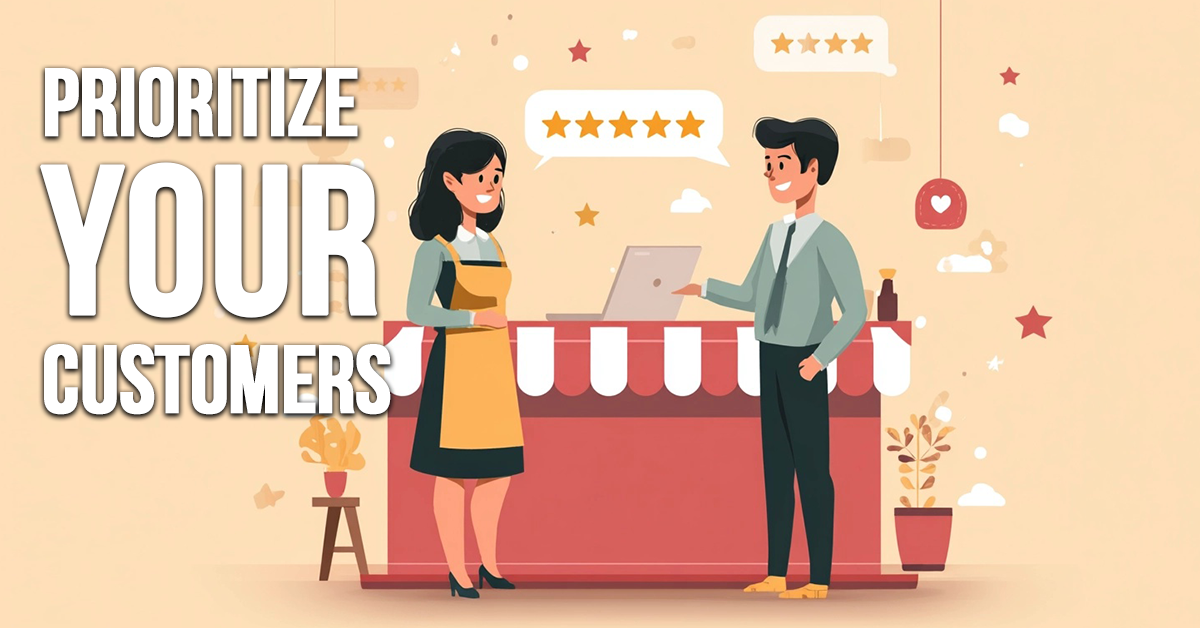Embracing Customer Importance in the Modern Era

Beyond “The Customer is Always Right”: Embracing Customer Importance in the Modern Era
When the visionary Harry Gordon Selfridge embarked on his ambitious endeavor to establish his own department store in London in 1909, he brought with him a wealth of experience gleaned from 25 years at the renowned Marshall Field’s. In his quest to carve out a unique identity for his new venture, Selfridge coined the now-iconic phrase: “The customer is always right.” This simple yet powerful statement served as a clear declaration of the paramount importance he placed on his clientele. And by all accounts, it worked. Selfridge’s flourished, becoming a retail institution that endured for over a century.
However, more than a century later, the question remains: does this seemingly straightforward assertion still hold water? Is the customer, in every single instance, truly always right?
Engage in a conversation with a business owner or manager, and you’ll likely encounter a different perspective compared to that of a waiter, waitress, or other frontline customer service professional. The reality, often unspoken but deeply felt by those on the receiving end of customer interactions, is that the customer is demonstrably not always right.
Customers, being human, are prone to errors. They might inadvertently select the wrong size when making a purchase, choose an unintended color, or fail to fully grasp the intricacies of shipping charges. In the realm of dining, a customer might confidently order a steak rare, only to discover upon its arrival that their preference actually leans towards medium. These are simple mistakes, born out of oversight or a momentary lapse in judgment.
The inherent challenge lies in the delicate dance of addressing these discrepancies. It’s a precarious situation when the person holding the purse strings is also the one in error. While you might possess the factual correctness in a particular situation, asserting that truth too forcefully can lead to a Pyrrhic victory – you win the argument but potentially lose a valuable customer in the process. The underlying principle remains: while the customer may not always be factually correct, their importance to the business cannot be overstated.
This delicate balance is further amplified in today’s hyper-connected world, fueled by the pervasive influence of the internet. An unpleasant experience, whether real or perceived, can be instantly broadcast across social media platforms and customer review websites, reaching a vast audience with lightning speed. The potential damage to a business’s reputation from negative online feedback is significant, making customer satisfaction an even more critical priority.
This digital reality has prompted a growing number of companies to adopt sophisticated “customer appeasement” programs. These initiatives move beyond the simplistic declaration that “the customer is always right” and instead focus on a more nuanced approach. Appeasement programs acknowledge the inherent importance of each individual customer and proactively seek to address any genuine or perceived issues they may encounter.
A cornerstone of an effective customer appeasement program is active listening. Truly understanding the customer’s perspective, even when their initial assessment might be inaccurate, is paramount. This empathetic approach paves the way for reaching an acceptable and reasonable resolution. The specific form of appeasement can vary depending on the situation, ranging from offering a coupon or a future discount to providing a complimentary promotional item or even issuing a full refund. The underlying goal is to make the customer feel heard, valued, and ultimately, satisfied with the outcome.
By implementing a robust appeasement strategy, businesses communicate a powerful message: while the customer may not always be right in every detail, their satisfaction and continued patronage are always of paramount importance. Retaining existing customers is often far more cost-effective and less challenging than constantly acquiring new ones. Cultivating customer loyalty through understanding and effective problem resolution is a cornerstone of long-term business success.
In the competitive landscape of today’s market, protecting your business extends beyond ensuring customer satisfaction. A solid business insurance program provides a crucial safety net against a range of potential threats. From safeguarding your physical assets against theft, vandalism, and severe weather to mitigating the financial risks associated with liability claims, comprehensive insurance offers invaluable peace of mind. Just as you invest in strategies to keep your customers happy, investing in the right insurance coverage is essential for the long-term security and stability of your business. Contact us today for a thorough business insurance review and a competitive price quote. Let us help you protect your hard work and build a more secure future for your enterprise.



